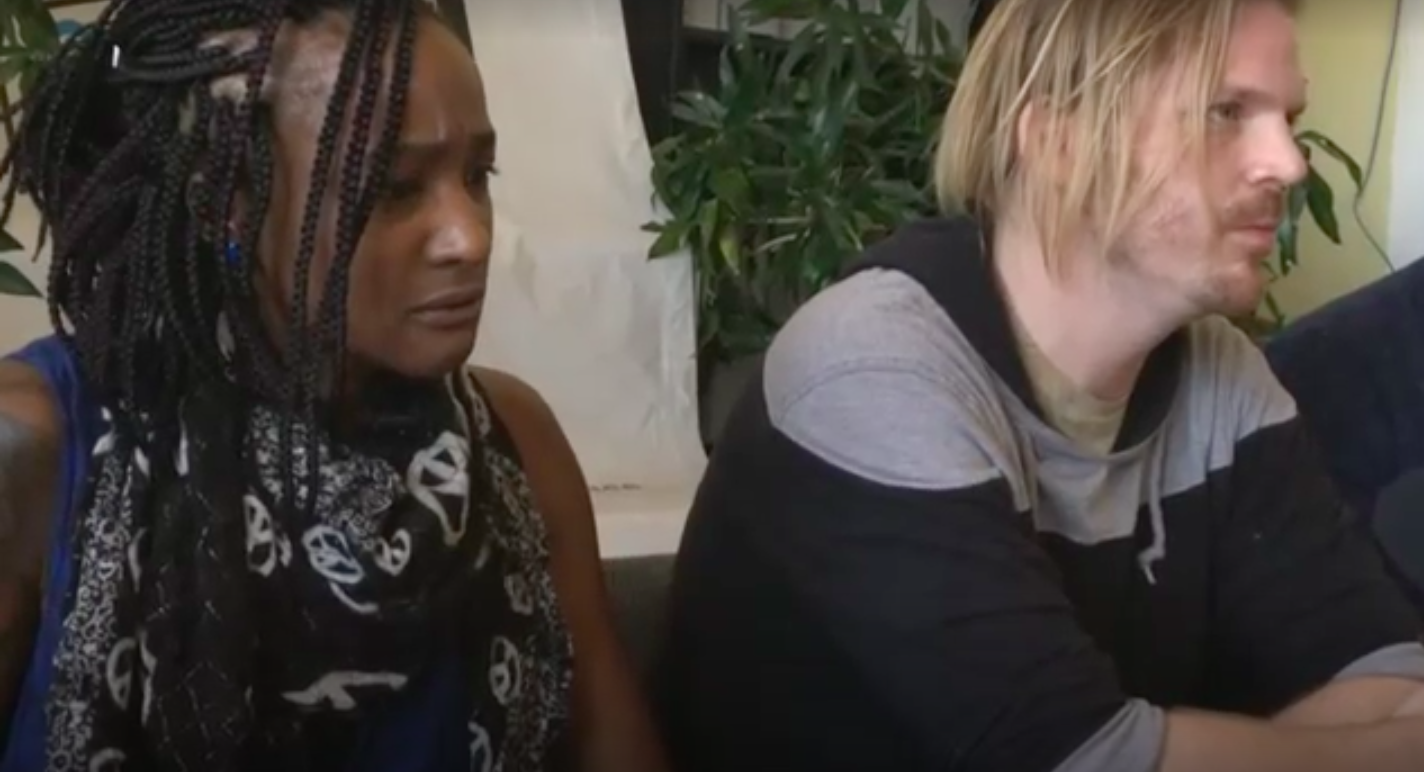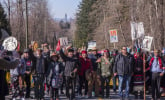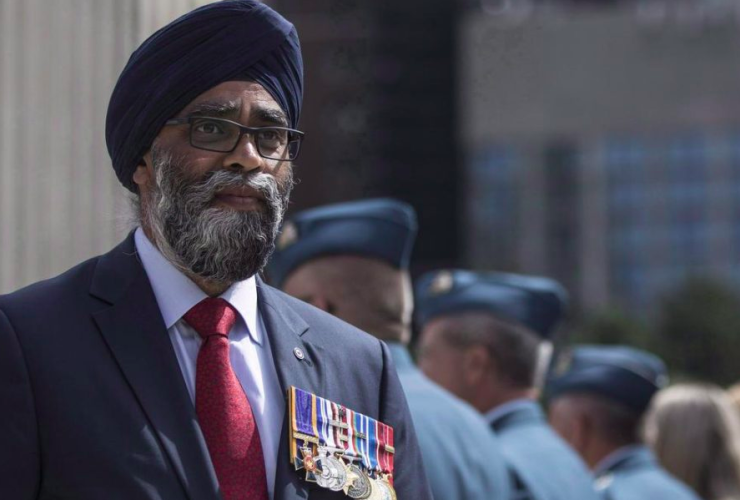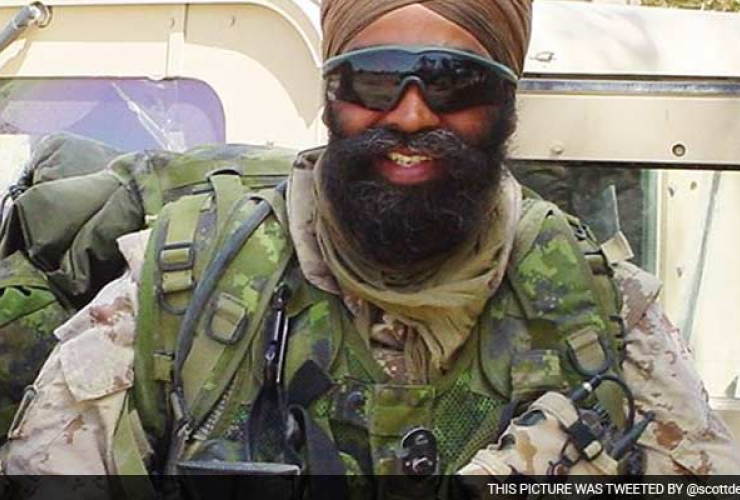Seven years ago, while working as the News Director for the Westmount Examiner, (a venerable weekly paper that served the City of Westmount in Montreal since 1935 and sadly went on to meet the fate of so many community papers), I wrote a column that would later garner me the Quebec Community Newspapers Award for Best Opinion Column.
The headline? Racial profiling is alive and well in Montreal – and that includes Westmount. It was my first time writing about racial profiling, but it certainly wouldn't be my last. It was about a Westmount resident, a local school teacher, out taking a leisurely summer walk on Forden Crescent; a part of town that’s dotted with swanky multi-million-dollar mansions.
Suddenly the female resident, who, yes... happened to be black, was stopped by Westmount’s Public Security Unit. A female officer asked her if “they could help her.” The implication was that she didn’t belong there. When the resident explained that she actually lived in the area and did not need any assistance, and inquired as to why she had been stopped, the officer gave her what constituted a flimsy excuse at best (they had received a call about a woman matching her description peering into windows.) There was no report filed and they went their separate ways, but the woman (who requested anonymity) was quite shaken by the incident and told The Examiner at the time that she had never been so insulted in her entire life.
While the incident never escalated into anything physically violent, the glaring contrast between an innocent woman doing nothing more than walking in broad daylight and the unwarranted suspicion it somehow managed to ignite in public security officers, along with the feelings of injustice and helpless frustration elicited in the victim, stayed with me.
The very first time I came face to face with my white privilege was when my younger sister started dating in high school. Her boyfriend was Haitian and during the seven years that they were together they were stopped by Montreal police officers often – while in and out of cars – and, almost always, without any apparent reason. Until my sister was exposed to racial profiling via her black boyfriend I, as a white woman, was blissfully unaware that something like this was so pervasive in my own hometown. I know better now. Although anecdotal, I have had enough conversations with black friends to know that most of them have had a “Starbucks moment” and that the things they worry about while walking, driving, or entering a business establishment are not the things I ever have to worry about.
Racial profiling is a pervasive problem with Montreal police
The same year I was writing about the Westmount incident, Joel Debellefeuille was seeking $30,000 in damages from the Montreal police for racial profiling. He had been pulled over four times in one week alone while driving his new BMW. The reason listed in the police reports (I kid you not) was that he was a black man with a… Québécois name (he’s adopted). Fully aware that police should not be in the business of assessing whether your name (or vehicle) fits your face, Debellefeuille filed complaints with the Quebec Human Rights Commission and the Police Ethics Commissioner. His legal saga lasted three years and required three court cases, but, in the end, he was vindicated, and the police officers involved were reprimanded with a five-day suspension.
In 2015, Debellefeuille was pulled over again for not wearing a seat belt, even though he argued that he was. He appeared in court five times during a 20-month period to fight the charge, and in the end the case was dismissed against him because of unreasonable delays. The most revealing part of Debellefeuille’s saga was when he told reporters that, since the incident, he had traded in his BMW for a Mazda and (at the time) hadn't been arrested since.
Incidents like these are not rarities. In 2010, a young black teacher was racially profiled, fined, and arrested by the police while he was simply waiting in his car for a friend outside a Montreal mall. I know that mall well. The publishing company I worked for at the time used to have production offices in that building. I can’t remember the number of hours I spent in my car going over documents, catching up on emails or waiting for colleagues at the end of the day. I was never stopped or questioned by police officers because I don’t fit the profile of what they clearly consider a suspicious person looks like.
Just this past month, Montreal police officers were, again, found guilty of racial profiling and ordered to pay David Mensah $14,000 in damages. Mensah, who is originally from Ghana, was working as a delivery man for a restaurant when he was pulled over by police in 2011, for having a burnt-out tail light. The police repeatedly asked him if he had drugs on him and he was forcibly arrested without being told why.
At the time of his arrest, Mensah was studying police technology in Ottawa. Following his arrest, he changed his mind. "They took my pride away," Mensah said in his testimony. "It took me five years … to be where I want to be. And it took them a couple of seconds to take it away from me."
And disturbing cases of obvious racial profiling go on and on. When Andrew Denis-Lynch took his girlfriend and her sister out for an ice-cream cone in 2017 police officers accused him of being drunk (he doesn’t consume alcohol) and ordered back-up. Before he knew it, he was surrounded by six police cars and officers were stepping out of their vehicles with their hands on their gun holsters. The incident left him shaken and traumatized.
Kenrick McRae was pulled over while driving his Mercedes, handcuffed, and detained in the back of a police car while video footage that he took of the incident was erased by the police officers. During one incident, the police claimed he was stopped because his car didn’t have a license plate. McRae did indeed have a well-attached licence plate and took a picture of that immediately after the incident.
This past Saturday, racial profiling involving the Montreal police again made the front-page news when a biracial couple alleged that they were its victims and violently mistreated by Montreal police officers for "walking while black". They were on their way to brunch at 10 a.m. when police intercepted them and told them they were being “too loud”. They proceeded to grab and throw the black woman against a car, accused her of being a drug addict, and then searched and handcuffed her without explanation. While her white boyfriend was watching speechless, more officers arrived on the scene, and without warning wrestled him and pepper sprayed him. They were each fined $444 for “making too much noise”. They are each now filing two complaints: one with the Quebec Human Rights Commission and another with the Police Ethics Commissioner.
I can’t imagine anything less threatening than two people in love laughing on their way to brunch in the middle of the morning, but somehow Montreal police officers saw trouble. And yet, despite what appears to me to be an open-and-shut case of racial profiling targeting an innocent professional woman doing absolutely nothing illegal, I saw the usual in-denial comments on social media pop up. “This can’t possibly be the whole story… they must have done something to have the police stop them.” There continues to be a desire to minimize or treat these cases as extremely isolated in nature, because to acknowledge that they happen routinely and disproportionately to people of colour is to acknowledge that the Montreal police force has a racism problem. And who wants to admit that?
Certainly not the police.
In 2010, they disputed the findings of an internal report that said that racial profiling within the city’s police force was “alarming.” The report was conducted by a criminologist who found that random stops of black citizens had more than doubled between 2001 and 2007. The study was commissioned by police after the shooting of 18-year-old Fredy Villanueva by a police officer in Montreal North in 2008. Unsurprisingly, police called the report “flawed”, “inaccurate”, “incomplete” and promptly rejected it.
And yet, according to a 2011 report written by the Quebec Human Rights Commission, ethnic minorities in Quebec are subject to "police surveillance that is targeted and disproportionate”. A 2015 report, again commissioned by the police department, to see if any advances have been made in addressing racial and social profiling was shelved for two years and not made public until 2017. The report found that police officers were missing the mark in many areas such as training programs, hiring visible minorities, funding outreach programs, and transparency.
Racial profiling and lack of diversity leads to erosion of public trust
Repeated cases of profiling and the lack of any substantial progress in addressing the issues has understandably eroded relations between ethnic communities and public authorities. The Quebec Human Rights Commission made 92 non-binding recommendations in the 2015 report to tackle the problem. Among them, reviewing anti-gang strategies used by police forces, increased transparency, granting police ethics boards more power to sanction against racial profiling, introducing anti-racism and sensitivity training at provincial police academies, enhanced de-escalation techniques, and forcing government departments to adopt action plans against racial profiling.
Other solutions to this pervasive problem, that have been shown to decrease racial profiling and unwarranted escalation of violence in other police forces, are identifying tools and interventions that raise awareness of implicit bias and discrimination, as well as provide strategies for overcoming said bias.
But one can’t tackle what one doesn’t acknowledge as a problem. We, here, have a systemic racism problem in our police force and that requires aggressive, long-term solutions. However, three years later, few, if any of the 2015 recommendations have been adopted. Serious flaws with the police ethics system and how the Ethics Commissioner handles complaints from citizens about police misconduct have also been addressed by the Centre for Research-Action on Race Relations. And band-aid solutions don't cut it anymore. Half-day sensitivity training sessions, not unlike the one Starbucks just announced, come off as public relations stunts and not as concrete and long-term solutions to deeply embedded institutional racism.
In the meantime, the lack of diversity within Montreal’s police force has also led to distrust among ethnic communities and a perception that the people who are paid to protect and serve us all only always look like some of us and appear to be distrustful of those who don’t.
Numbers compiled by CBC News in 2018 showed that Montreal’s police force remains overwhelmingly white, with only 8.5 per cent made up by visible minorities. This, in a city that is composed of 32 per cent visible minorities, according to Statistics Canada. Statistics from regional police forces show similar findings.
Not only is racial profiling ultimately ineffective and dehumanizing, it also makes marginalized communities, who are often targeted the most by bias, feel less safe. When distrust develops in the police, people in need of help are less likely to ask for it. When consequences for offending officers are few and far in between, this also leads to the erosion of trust, which, in turn, has led to the rise of movements like Black Lives Matter. Concrete changes in the way police are trained is necessary, as well as real accountability, to restore public trust and improve relations between the community and the police force. Montreal's police force is certainly not unique to this problem. Racial profiling is an issue facing police forces in all big North American cities.The Edmonton police force has often been accused of racial profiling of the city’s Indigenous population and Toronto has had numerous issues with police carding.
As a general rule, police officers are trusted by most members of society and are often given wide discretion and the benefit of the doubt when performing their jobs. Most are good, honest, hard-working professionals trying to do their jobs to the best of their abilities, but we owe it to the victims of those who are not to ensure that racial profiling, excessive use of force, and abuse of power are not repeatedly occurring, swept under the rug, or ignored as non-issues. Racial profiling is happening way too often for us to be collectively dismissing it as an unfortunate exception.






Comments